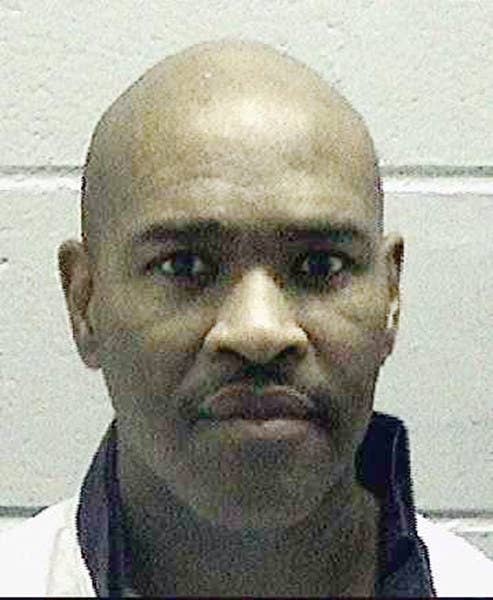
Georgia executed Brian Keith Terrell on Wednesday morning for killing a 70-year-old family friend more than twenty years ago.
The Georgia Board of Pardons and Paroles, which has the sole power for granting clemency in the state, denied Terrell clemency on Monday.
On Tuesday evening, however, a request was pending before the Supreme Court to issue a stay of execution in conjunction with a request for the court to hear his appeal from the Supreme Court of Georgia. Georgia opposed the request.
In a second filing at the Supreme Court, Terrell's lawyers raised their Eighth Amendment claim, unsuccessful in federal courts below, relating to the compounding pharmacy the state is using for securing its execution drugs. Georgia also opposed this request.
At 11 p.m., the court denied both requests. There were no noted dissents from any justices.
Georgia's Department of Corrections confirmed in a statement Terrell was executed at 12:52 a.m. Wednesday, the Associated Press reported.
In 1992, John Watson discovered Terrell forged $9,000 in checks from him, according to court records. Watson confronted Terrell's mother, who was his good friend, and said he would not press charges if Terrell returned most of the money within a couple days.
But on the second day, Watson was found severely beaten and fatally shot.
The case relied on testimony from Terrell's cousin, who said Terrell told him he had killed Watson. The cousin now says he lied because police threatened him, but refuses to sign an affidavit saying so, according to Terrell's attorneys.
Terrell has faced multiple trials and execution dates. The first trial ended in a hung jury. In his second trial, Terrell was convicted of malice murder and forgery, but the state courts ordered a new trial. In his third trial, Terrell was sentenced to death.
He was originally scheduled to be executed in March, but the state called it off after realizing its lethal injection drug had particles floating in it. After an internal investigation, the state concluded that it was due to the drug being stored at too cold of a temperature. However, the state attempted to withhold results of an experiment, and only turned it over after a BuzzFeed News article.
The results of that experiment did not support the state's conclusion that it was due to temperature, and not a problem with mixing the drug.
Georgia, like some other death penalty states, obtains its execution drugs from a secret compounding pharmacy that mixes up the drug for a specific purpose. Compared to manufacturers, compounders face less regulation and their products have a higher failure rate.
Terrell's attorneys argue this secret compounding pharmacy is not reliable, and that it could subject him to an unconstitutional death. His attorneys propose finding a better compounder.
But the courts have so far not been willing to halt Georgia's executions due to drug concerns. The state has carried out two executions with the same compounder after its internal investigation into the faulty drugs.
"Whatever went wrong with the compounded pentobarbital on March 2, Terrell has not shown that as a result of that occurrence, he faces an objectively unreasonable risk of serious harm," U.S. District Judge Timothy Batten wrote Tuesday.
